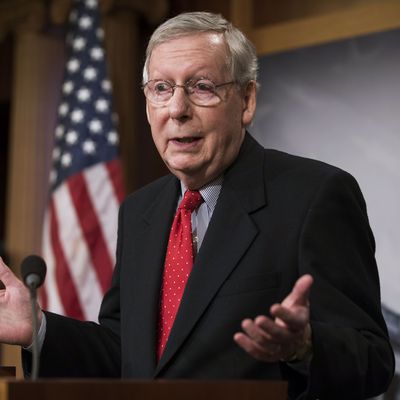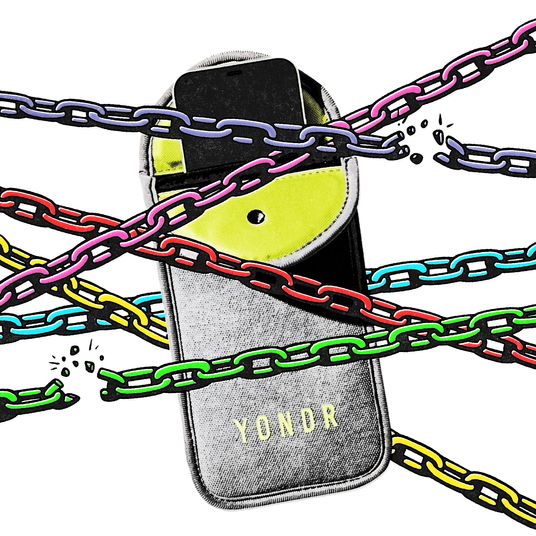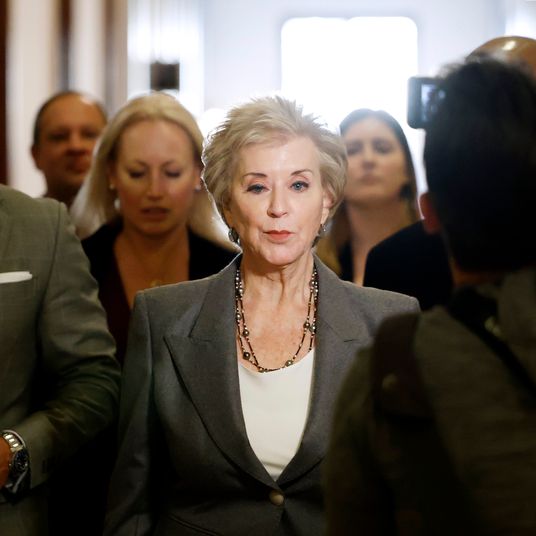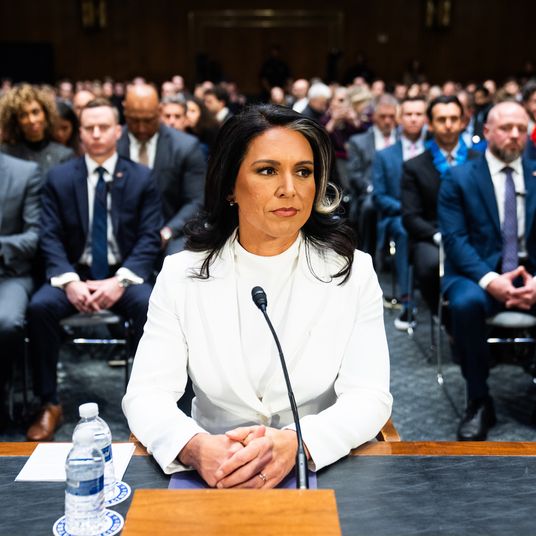
On November 9, a senior Republican explained what was then the Republican Party’s consensus posture toward President Trump’s refusal to accept the election results. The quote, given anonymously to the Washington Post, became instantly notorious: “What is the downside for humoring him for this little bit of time? No one seriously thinks the results will change.”
Needless to say, that explanation looks even worse now. McConnell and his allies are trying to launder their reputations. McConnell’s excuse is contained within a deeply reported New York Times narrative account of Trump’s election challenge. Apparently, McConnell was duped by Trump and his wily son-in-law:
The senator was also under a false impression that the president was only blustering, the officials said. Mr. McConnell had had multiple conversations with the White House chief of staff, Mark Meadows, and the senator’s top political adviser, Josh Holmes, had spoken with Mr. Kushner, the president’s son-in-law and senior adviser. Both West Wing officials had conveyed the same message: They would pursue all potential avenues but recognized that they might come up short. Mr. Trump would eventually bow to reality and accept defeat.
Poor sweet, naïve Mitch McConnell was told that Trump would graciously concede defeat, only to eventually realize Trump had misled him.
These conversations no doubt took place. The question is whether McConnell was actually gullible enough to swallow it whole and let his trust in Trump’s responsibility and respect for the democratic process guide his behavior.
Trump, of course, challenged the outcome of the 2016 election, suggesting beforehand it would be rigged, and then claiming afterward his defeat in the popular vote had been faked. He began laying the groundwork to deny the 2020 election outcome for months in advance. As early as 2019, his campaign refused to commit to conceding the election in the case of a defeat. In the days after the election, current Trump advisers, as well as former advisers like John Bolton, were (accurately) telling reporters Trump would never concede.
McConnell was getting a more reassuring story about Trump’s intentions through his back channels. Again, the question is whether he actually believed it. What are we to make of the news that Jared Kushner promised Josh Holmes, a McConnell confidant, Trump didn’t really mean all his scary talk about the stolen election? The trope that Kushner would steer his father-in-law away from his most destructive beliefs has been tried, and found wanting, so many times it’s been reduced to a punch line. If McConnell was fooled, it’s because he wanted to be fooled.
His incentives clearly ran toward humoring Trump’s attempt to overthrow the election and downplaying the damage it would cause. As Robert Costa reported on November 9, McConnell’s calculus was driven entirely by his desire to win the Georgia special elections. McConnell believed “the base must be stoked,” which meant supporting Trump’s lies. McConnell’s posture at the time was that Trump was merely doing to Democrats what they had done to him: “Let’s not have any lectures about how the president should immediately, cheerfully accept preliminary election results from the same characters who just spent four years refusing to accept the validity of the last election.” (In fact, Hillary Clinton conceded her defeat the morning after the vote.)
The Times does note that McConnell’s thinking about Trump’s autogolpe changed less because of any principled revulsion than because it became a liability rather than an asset in the Senate contest: “Perhaps most important in Mr. McConnell’s evolving calculus, internal polls were showing that the Republicans’ strongest argument in the Georgia runoffs was that a Republican-led Senate would be a necessary check on a new — and inevitable — Democratic administration.”
Everything in Trump’s history made it obvious he would provoke a crisis if defeated. McConnell chose to cooperate with Trump’s attack on the republic for the same reason he spent the previous four years cooperating with Trump: because it enhanced his own power.
McConnell has always fashioned himself the canniest man in Washington. His desire to broadcast his own savvy has frequently led him to counterproductively blurt out of his own cynicism. (McConnell has famously admitted that his goals under Obama were to deny the president bipartisan cover and make him a one-term president, quotes that Democrats later threw back in his face.) He simply cannot suppress his instinct to let everybody know how shrewdly he plays the game.
McConnell is now casting himself as a dupe because it is the only escape. He has been implicated in a historic crime.






























